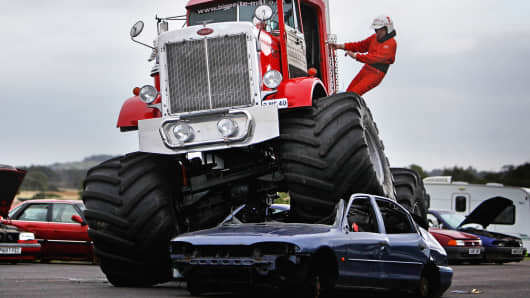Instead, Anchor Hocking's decline was the result of a series of bad buyouts and bad management, beginning when trader (and Donald Trump's Special Adviser on Regulatory Reform) Carl Icahn temporarily gained control of the company in 1982. Over the next 30 years, Anchor Hocking experienced a series of leveraged buyouts and private equity purchases, each of which saddled the company with a growing debt load and highly credentialed management with little-to-no experience in glass making.
As Anchor Hocking's debt grew, management cut worker pay and benefits, and investment in the surrounding community of Lancaster disappeared.
So back to the original question.
Why are Americans ignoring "experts"?
The story of Anchor Hocking illustrates one big reason why. Beginning with Carl Icahn, a philosophy graduate of Princeton with no background in glass manufacturing, a three-decades-long series of management "experts" and financiers walked in and out of a profitable company, loading Anchor Hocking with debt, reducing worker pay and benefits, and paying large fees to CEOs, consultants, and board members who almost never had industry experience.
And while Anchor Hocking workers weren't displaced by cheap overseas labor, workers in industries that are impacted by trade have heard economists say for years without reservation that in the long run, trade makes everyone better off—even as they watched good jobs leave and their communities disintegrate.
That lack of trust in experts is further intensified when workers and communities see these same experts explain how Snapchat founder Evan Spiegel is worth almost $5 billion, despite starting a company that loses half a billion dollars a year.
If you were on the wrong side of this story, a lot of what has happened in the economy in the last 30 years would make no sense—like how Evan Spiegel can become a billionaire by losing a fortune, but the still profitable company you've spent years working for can only survive by cutting your pay.
If your grandfather and father had made a good living making glass, and you saw that way of life disappear while MBAs with no knowledge of what it means to be a glassmaker became wealthier in the process, you could start to think that anyone positioning themselves as an expert uses most of their expertise to think of new ways to rip you off.
Maybe that's the reason why millions of people could come to believe Facebook memes over highly credentialed experts, and how such skepticism contributes to the overall distrust of knowledge. For example, only 39 percent of Americans say they have "a lot" of trust in information from climate scientists.
But America didn't catch a resistance to facts, as though ignorance was the common cold.
There are a lot of reasons why experts are trusted less, but MBAs who swear the only way to save a profitable company is by loading it up with backbreaking debt, and economists who dismiss the human impact of trade, could be among the guilty parties.
And, if you can't trust experts on issues that touch your day-to-day life, it becomes much harder to trust experts on more abstract issues like climate change.
And if we want that to change, one place to start is with experts taking responsibility for the damage they've done to communities like Lancaster, Ohio—and to workers and companies across America.
Commentary by Dustin McKissen, the founder and CEO of McKissen + Company, a strategy, marketing, and public relations firm based in St. Charles, Missouri. The firm does consulting work analyzing how politics effects the business climate for clients in the U.S., Europe, and Latin America. He was named one of LinkedIn's "Top Voices" in 2015 and 2016. He holds a Bachelors degree in Public Policy, and a Masters degree in Public Administration and is currently pursuing a PhD in Organizational and Industrial Psychology. Follow him on Twitter @DMcKissen.
For more insight from CNBC contributors, follow @CNBCOpinion on Twitter.



